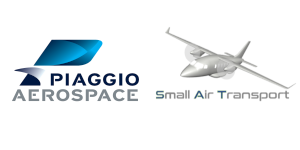
Piaggio Aerospace has taken a significant step in aeronautical innovation for Small Air Transport (SAT) Design through the successful completion of Project E-LISA, which stands for ” Electro-mechanical Landing gear system Integration for Small Aircraft”. This project represents a notable progression in the company’s technological research roadmap, focused on exploring innovative technologies and preparing them for onboard implementation.
A major achievement of SAT is the delivery of a cutting-edge test bench, enabling in-house testing of the fully electric P.180 landing gear. This landing gear incorporates advanced electro-mechanical actuators and brakes developed in collaboration with two prominent Italian aerospace companies, Umbra Group and UAS Aerospace.
The technology integrated into the P.180 landing gear is groundbreaking in several aspects. The electro-mechanical actuation, developed within the dedicated FASE-LAG (FAil-Safe Electro-mechanical actuation for LAnding Gear) Project, enhances precision in controlling the landing gear, thereby improving safety and reliability during landing and take-off phases. Meanwhile, the electro-mechanical brake, a product of the E-BRAKE project, delivers greater efficiency in managing the aircraft’s groundspeed, reducing wear, and ensuring longer component life, thereby reducing operating costs.
The project has been carried out with the participation of Magnaghi Group, Polito, Certia e Proetico
E-LISA equips Piaggio Aerospace Lab with the capability to test landing gear systems, whether electric or conventional, under comprehensive test conditions that cover overall operational scenarios.
Furthermore, the E-LISA test bench will be incrementally integrated into the SAT framework, along with other test benches developed in parallel in the Cleansky2 projects and a Flight Simulator. This integration allows for aircraft-level testing, ensuring seamless integration and operational readiness of all new technologies.
Upon the completion of Cleansky2 activities, the Laboratory will be capable of conducting tests in which each element is subjected to representative flight conditions. This enables the analysis of aircraft behaviour based on real equipment responses, essentially allowing for virtual flight of a real aircraft
This capability area is crucial for refining products, ensuring safety, reliability and superior performance of aircraft by obtaining experimental feedback early in the development phase, and supporting the achievement of permits to fly and certifications.
